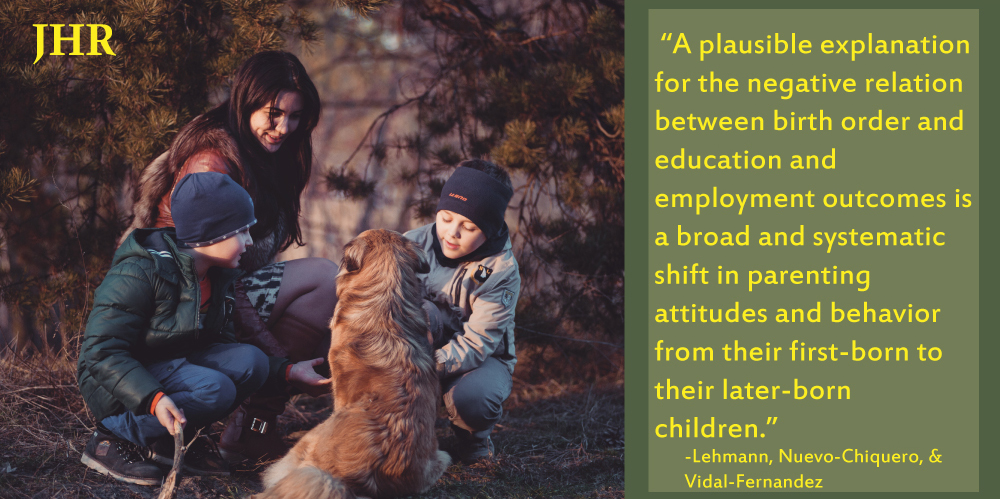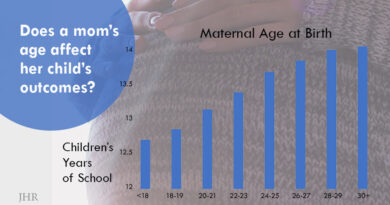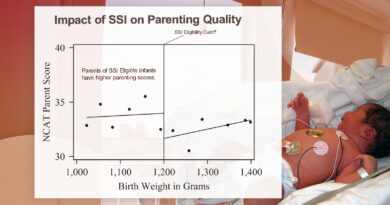Why Do First-Borns Perform Better? The First Years
A myriad of studies find that later-born children have worse educational and labor market outcomes as adults than their older siblings, a phenomenon known as the “birth order effect.” New research finds these differences begin very early in children’s lives—and parenting behavior can explain it.
The origins of the birth order effect are unclear. Younger children may benefit from having more experienced parents, but they also compete for resources with more siblings. To explore this question, researchers Jee-Yeon K. Lehmann, Ana Nuevo-Chiquero, and Marian Vidal-Fernandez examined data from 5,000 U.S. children who completed developmental and standardized tests every two years from birth to age 14.
They found that birth order differences in cognitive assessments are evident very early on. As early as age one, later-born children score lower than their older siblings on these assessments. Moreover, the birth order gap in cognitive abilities increases until school entry and remains substantial thereafter.
Examining parental behavior, they found that parents provide lower levels of cognitive stimulation at home for later-born children. Also, mothers are less likely to breastfeed, seek timely prenatal care, and reduce smoking in subsequent pregnancies. These changes in parental behavior can explain most of the birth order difference in cognitive test scores before school entry.
This points to a plausible explanation for the birth order effect—a broad shift in early parenting, especially with respect to parents’ ability to foster early cognitive development. However, the authors did not find any differences in the level of emotional support provided by parents, suggesting that parents choose to focus on what can be viewed as the essential part of parenting in the presence of multiple children.
Read the full study in the Journal of Human Resources: “The Early Origins of the Birth Order Differences in Children’s Outcomes and Parental Behavior,” by Jee-Yeon K. Lehmann, Ana Nuevo-Chiquero, and Marian Vidal-Fernandez.




